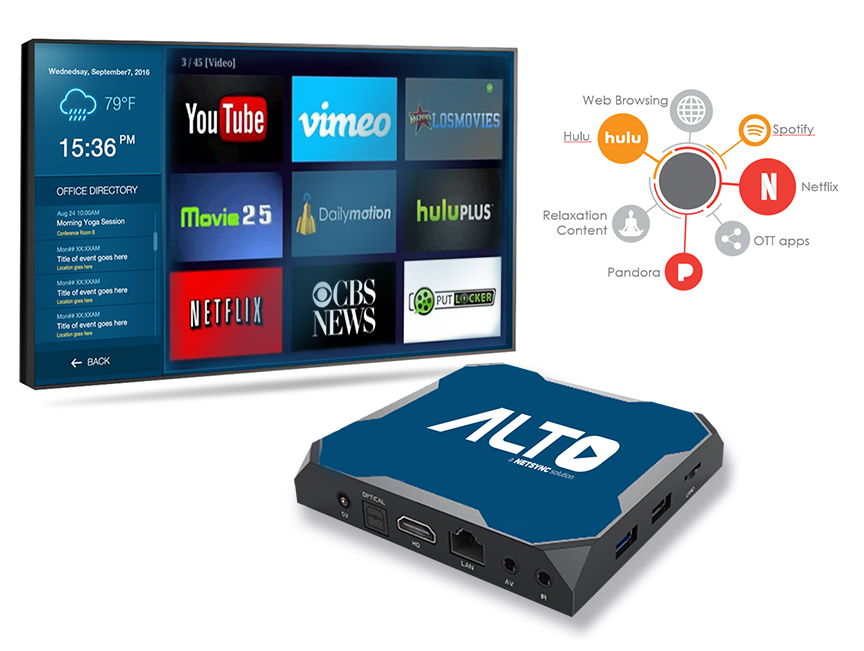Exactly How IPTV Functions: Your Total Guide to Streaming Television Online
IPTV, or Web Procedure Television, represents a considerable change in just how we consume television material, moving away from standard broadcasting approaches to an extra flexible, internet-based method. By using a client-server design, IPTV allows customers to access a substantial array of programming through digital packages transferred over broadband connections.
What Is IPTV?
In the world of digital media, IPTV, or Web Method Tv, represents a transformative strategy to providing television material. Unlike standard broadcasting techniques, which rely on wire, terrestrial, or satellite systems, IPTV makes use of net procedure to stream material directly to devices such as smart devices, tablet computers, and televisions. This technology makes it possible for customers to access a wide range of programming via high-speed web connections, offering adaptability and comfort.
IPTV can be categorized right into three primary solution designs: live television, video clip on demand (VOD), and time-shifted tv. Online television permits individuals to watch programs in real-time, while VOD offers access to a collection of content that can be watched at the customer's convenience. Iptv. Time-shifted tv allows visitors to enjoy shows at their favored time, even if they initially broadcast live
Moreover, IPTV usually integrates interactive features, such as electronic program overviews and video recording capacities, enhancing the watching experience. As consumers significantly demand personalized web content and on-demand services, IPTV stands out as a compelling remedy, reshaping the tv landscape and offering unmatched alternatives for audiences worldwide.
Just How IPTV Works
The seamless assimilation of technology and customer experience defines exactly how IPTV runs. Internet Procedure Tv (IPTV) supplies television shows and other multimedia material by means of internet protocols, instead of standard terrestrial, satellite, or cable television formats. This process entails inscribing video clip content into electronic packages that are sent over a broadband internet connection.
IPTV typically makes use of a client-server version where content is stored on a server and sent to the individual's tool-- such as a wise television, computer system, or mobile phone-- upon demand. The content shipment is promoted via a set-top box or an application that translates the incoming information and presents it on the display. Especially, IPTV operates on a live or on-demand basis, allowing users to access a broad array of networks and shows.
An essential aspect of IPTV is its reliance on a durable broadband link, which makes certain smooth streaming and high-grade video clip playback. In addition, IPTV systems usually include innovative features such as electronic program guides (EPGs), time-shifting, and video-on-demand (VOD), enhancing the watching experience. On the whole, IPTV stands for a substantial evolution in exactly how viewers consume tv web content, leveraging the power of the internet for improved availability and versatility.
Advantages of IPTV
While standard television methods often restrict viewer selections and access, IPTV uses many benefits that boost the general watching experience. Among the key benefits is the extensive range of material offered. Viewers can access a substantial collection of channels, on-demand programs, and films, tailored to private preferences.
In addition, IPTV supports numerous gadgets, permitting users to stream material on mobile phones, tablets, clever TVs, and computer systems. This flexibility ensures that customers can watch their favored programs anytime and anywhere, as long as they have an internet link. IPTV commonly includes interactive components, such as time out, rewind, and document performances, supplying individuals with better control over their watching routines.
Cost-effectiveness is another noteworthy advantage. Several IPTV solutions use affordable rates compared to traditional cord registrations, often Recommended Reading without covert charges or long-lasting agreements. This price makes it much easier for consumers to check out different networks and web content without significant financial commitments.
Lastly, IPTV normally flaunts premium picture top quality, consisting of high-def and 4K alternatives, boosting the total watching experience. Jointly, these advantages make IPTV an engaging option for modern-day visitors looking for adaptability, variety, and top quality in their enjoyment options.
Kinds Of IPTV Solutions
IPTV services can be categorized right into a number of distinct types, each dealing with different audience needs and choices. The primary categories include real-time television, on-demand web content, and time-shifted IPTV.
Real-time television IPTV provides real-time streaming of broadcast networks, enabling audiences to watch programs as they air. This solution carefully looks like traditional cable television, supplying access to a variety of channels, including information, sports, and entertainment.
On-demand IPTV, on the various other hand, enables individuals to enjoy and pick material at their convenience. This consists of movies, series, and docudramas that can be streamed whenever image source the visitor chooses, using flexibility and customization.
Time-shifted IPTV integrates elements of both on-demand and online services. It allows customers to pause, rewind, or document live programs, providing them the ability to manage their viewing experience. This service is specifically useful for those with hectic routines, as it suits visitors that may miss real-time broadcasts.

Establishing IPTV
Establishing IPTV entails several vital actions to guarantee a seamless watching experience. Initially, you need a steady web connection, preferably a broadband solution with a minimum speed of 10 Mbps for standard definition and at the very least 25 Mbps for high definition streaming. This guarantees very little buffering and a smooth playback.
Next, pick an IPTV solution supplier. Study different options, contrasting their channel offerings, pricing, and customer testimonials. When you've chosen a provider, you usually receive login qualifications and a web link to access the IPTV service.
To start streaming, you'll require a compatible tool - Iptv. Numerous IPTV solutions can be accessed with Smart TVs, streaming boxes like Roku or Amazon Fire television, computers, or mobile phones. Download the corresponding application or software for your chosen system
After setup, visit using your credentials and set up any type of necessary setups, such as parental controls or channel choices. Connect your device to your television using HDMI, and you're ready to take pleasure in a wide variety of networks and on-demand web content. Frequently look for software application updates to boost performance and safety and security, making certain an optimal IPTV experience.
Final Thought

IPTV, or Net Protocol Tv, stands for a significant shift in how we take in television material, relocating away from traditional broadcasting techniques to a much more adaptable, internet-based strategy.In the realm of electronic media, IPTV, or Net Method Tv, stands for a transformative strategy to supplying tv material.IPTV can be classified into 3 key solution versions: real-time tv, video clip on need (VOD), and time-shifted tv. Net Procedure Television (IPTV) delivers television programming and other multimedia web content using net methods, instead than standard terrestrial, satellite, or cord styles. In general, IPTV represents a significant evolution in just how visitors take in television material, leveraging the power of the web for enhanced ease of access and flexibility.